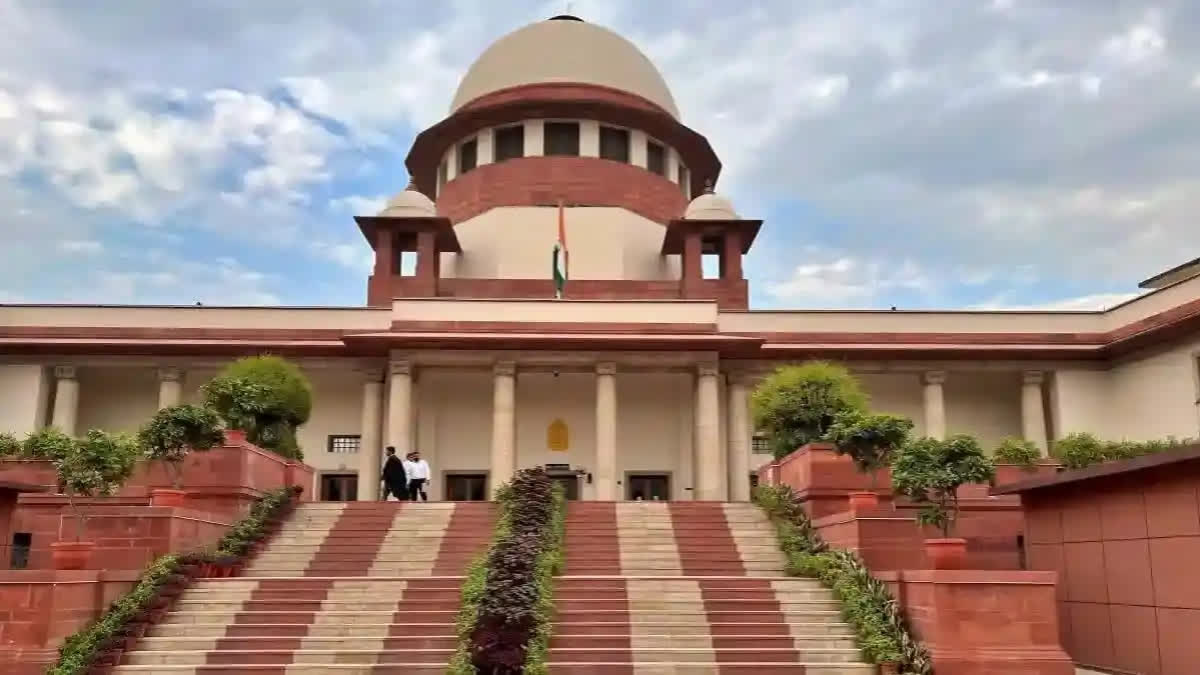New Delhi: Expressing anguish that a man who was accused for harassing his wife and driving her to die by suicide in November 1993, had to suffer a 30-year-long and draining legal battle to prove his innocence, the Supreme Court on Wednesday observed that “the criminal justice system of ours can itself be a punishment”.
The apex court said mere harassment is not sufficient to hold an accused guilty of abetting the commission of suicide. A bench comprising Justices J B Pardiwala and Manoj Misra said: “We may only observe that the criminal justice system of ours can itself be a punishment. It is exactly what has happened in this case. It did not take more than 10 minutes for this court to reach an inevitable conclusion that the conviction of the appellant convict for the offence punishable under Section 306 of the IPC is not sustainable in law”.
“The ordeal for the appellant started sometime in 1993 and is coming to the end in 2024, i.e. almost after a period of 30 years of suffering. At the same time, we are also mindful of the fact that a young woman died leaving behind her 6 months old infant," said the bench, in its order passed on February 22.
The apex court emphasized that no crime should go unpunished but at the same time, the guilt of the accused has to be determined in accordance with law. The guilt of the accused has to be determined on the basis of legal evidence on record, it said.
The apex court observed that mere harassment is not sufficient to hold an accused guilty of abetting the commission of suicide. “It also requires an active act or direct act which led the deceased to commit suicide. The ingredient of mens rea cannot be assumed to be ostensibly present but has to be visible and conspicuous”, it said.
The petitioner Naresh Kumar moved the apex court challenging the 2008 Punjab and Haryana High Court, which declined to grant him any relief. A trial court convicted the petitioner in 1998, and the high court upheld the trial court's decision to convict the husband under Section 306 (abetment of suicide) of the IPC.
The apex court stressed that the mere fact that the deceased died by suicide within seven years of marriage will not make the presumption under Section 113A (presumption as to abetment of suicide by a married woman) of the Indian Evidence Act apply automatically.
“The court should be extremely careful in assessing evidence under section 113A for finding out if cruelty was meted out”, said the bench. “If it transpires that a victim committing suicide was hyper sensitive to ordinary petulance, discord and differences in domestic life quite common to the society to which the victim belonged and such petulance, discord and differences were not expected to induce a similarly circumstanced individual in a given society to commit suicide, the conscience of the Court would not be satisfied for holding that the accused charged of abetting the offence of suicide was guilty”, added the bench.
The apex court Section 113A has been interpreted by it in Lakhjit Singh v. State of Punjab, 1994, Pawan Kumar v. State of Haryana, 1998, and Smt. Shanti v. State of Haryana, 1991. “This court has held that from the mere fact of suicide within seven years of marriage, one should not jump to the conclusion of abetment unless cruelty was proved. The court has the discretion to raise or not to raise the presumption, because of the words 'may presume'. It must take into account all the circumstances of the case which is an additional safeguard”, said the bench.
The apex court set aside the judgment and order of conviction passed by the trial court, which was affirmed by the high court. “The appellant stands acquitted of the charge framed against him…. Since the appeal is being allowed and the convict is being acquitted, the bail bond(s) furnished then shall also stand discharged”, said the bench.
Read More
- 'Waste of Time': SC Imposes Rs 1 Lakh on Petitioner for Appeal against HC Order
- 'What is the Prejudice Caused?': SC to Tamil Nadu on ED Summonses to District Collectors
